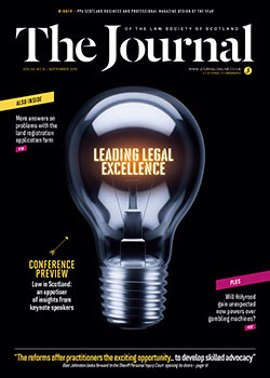Thanks, but no thanks

Over the last few months, I have discussed various aspects of pricing to win work. But when a new opportunity comes along, there is a prior question: Do I want this job at all?
Lawyers are poor at answering it. There is something about us that makes it difficult to say no: desire to help; reluctance to offend; a feeling that any work is better than none; anxiety about hitting fee targets; fear of not being able to feed the machine. And so we tell ourselves stories to justify taking on whatever comes our way: it helps cover the overheads; we may lose on this job, but it’s an “investment” to win better work; if we don’t do it, our competitors will, and we will never see the client again. As in love, the possibilities for self-deception are infinite.
I know this from personal experience. When my wife and I set up our firm, I had just recovered from a tussle with cancer, in which, thankfully, it came a close second. We took on a sleep-repellent mortgage to get the firm established. We had a lot of belief, but there was no guarantee we would convert any of that into reality.
Back then, if a potential client had wandered in and asked me for a quote to paint his garage, I would happily have grabbed a brush. Even though the firm grew to employ hundreds of people, that feeling of insecurity – a combination of personal experience and my third-generation Jewish immigrant mentality – never completely went away. So if you ask me if I ever took on work I should have avoided like the plague “because it was there”, I confess to being a serial offender before the penny, as it were, dropped.
In the bear pit of today’s market, with every single piece of business hard won, the temptation to take whatever comes in the door has never been stronger. But precisely because the pressure on profit is so intense, it has never been more important to assess every opportunity with our heads, not our hearts. To an engineer, or quality controller, the term, “Go/No Go” has a defined meaning: Does the product meet the right specifications? Is it safe to proceed with manufacture? Go/No Go should be our test too. We need to ask (and give honest answers to) questions such as:
What markets do we want to serve?
Look around the most successful firms, of whatever size or sector. All of them are clear about the markets they want to be in, and aspire to deep excellence. Sometimes, as with my firm, this has involved big bets: abandoning mainstream areas of practice, or electing to practise exclusively in a specialised field. Firms that try to be most things to most people, or that have not properly thought through what they want to be, can still be spotted performing the neat trick of spiralling downwards, while vanishing up their own fundamental haplessness.
Do we have the skills to do this job well?
Note the emphasis on “well”. The question is not, “Can we, with the wind at our back, Jupiter in the ascendant, and the client not noticing, muddle through?” However juicy the fee being offered, taking on work in which the firm is not expert, or does not have the resources to manage successfully, is an express route to grief and pain.
Do we have the data and process skills to make informed choices?
The antidote to decisions based on fear, hope and greed is good data and process. Assuming you have the technical skill, how well are you able to calculate the cost of doing the job? Are you able to make well informed decisions on who should best deliver it, how they will deliver it and what resources they will need to complete the task to the client’s satisfaction?
Do you have the skills and methodologies to price attractively, with a decent margin? Large firms have the advantage that they are able to acquire specialists in finance, project management, tendering and pricing.
They are critical to deciding Go/No Go, when every major tender may mean spending tens of thousands of pounds in time and cash. But the ability to develop robust systems and effective processes which will guide good choices is within the reach of every firm.
It is impossible to develop a successful strategy without the wisdom and courage to say no. If you were to wander into Pizza Express and attempt to order a plate of Pattaya Prawns, you would be pointed to the Thai Tanic down the street. You will never hear, “Hang on, we’ll just turn off the oven, grab a wok, and get started”. Securing the largest slice for your firm means following their example, however difficult it seems.
In this issue
- Good health – fair question?
- Time to raise the age of criminal responsibility
- Adoption of foreign children – a clash of cultures?
- Presumed liability: the case for action
- Le Bief Bovet: 700 years of litigation
- Reading for pleasure
- Opinion: James O'Reilly (fuller version)
- Opinion: James O'Reilly
- Book reviews
- Profile
- President's column
- Land Register completion update
- People on the move
- Conference calls
- A new court rises
- Questions of form
- Charities - why reserves matter
- Place your bets
- Pensions: a formula unravelled
- Whereabouts unknown?
- Lego Man keeps his mark
- The company one keeps
- Scottish Solicitors Discipline Tribunal
- Land, leases and LBTT
- Big budget brief
- Support sought as Napier joins the law clinics
- Public Guardian's fees to increase
- Law reform roundup
- TCPD: the Update way
- How are we doing?
- Thanks, but no thanks
- Ask Ash






